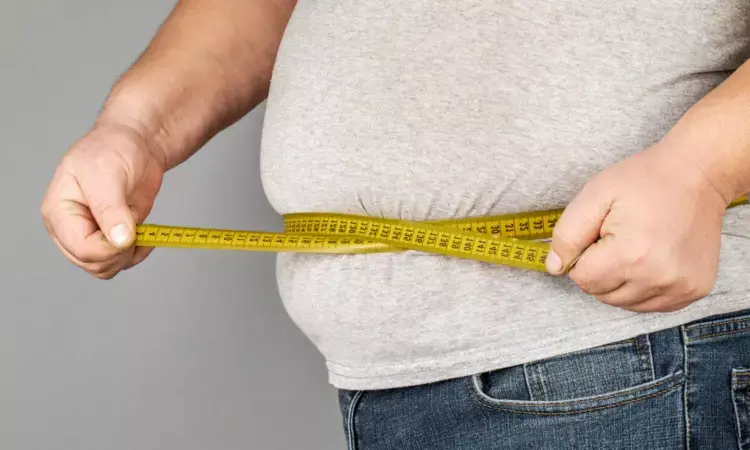- Home
- Medical news & Guidelines
- Anesthesiology
- Cardiology and CTVS
- Critical Care
- Dentistry
- Dermatology
- Diabetes and Endocrinology
- ENT
- Gastroenterology
- Medicine
- Nephrology
- Neurology
- Obstretics-Gynaecology
- Oncology
- Ophthalmology
- Orthopaedics
- Pediatrics-Neonatology
- Psychiatry
- Pulmonology
- Radiology
- Surgery
- Urology
- Laboratory Medicine
- Diet
- Nursing
- Paramedical
- Physiotherapy
- Health news
- Fact Check
- Bone Health Fact Check
- Brain Health Fact Check
- Cancer Related Fact Check
- Child Care Fact Check
- Dental and oral health fact check
- Diabetes and metabolic health fact check
- Diet and Nutrition Fact Check
- Eye and ENT Care Fact Check
- Fitness fact check
- Gut health fact check
- Heart health fact check
- Kidney health fact check
- Medical education fact check
- Men's health fact check
- Respiratory fact check
- Skin and hair care fact check
- Vaccine and Immunization fact check
- Women's health fact check
- AYUSH
- State News
- Andaman and Nicobar Islands
- Andhra Pradesh
- Arunachal Pradesh
- Assam
- Bihar
- Chandigarh
- Chattisgarh
- Dadra and Nagar Haveli
- Daman and Diu
- Delhi
- Goa
- Gujarat
- Haryana
- Himachal Pradesh
- Jammu & Kashmir
- Jharkhand
- Karnataka
- Kerala
- Ladakh
- Lakshadweep
- Madhya Pradesh
- Maharashtra
- Manipur
- Meghalaya
- Mizoram
- Nagaland
- Odisha
- Puducherry
- Punjab
- Rajasthan
- Sikkim
- Tamil Nadu
- Telangana
- Tripura
- Uttar Pradesh
- Uttrakhand
- West Bengal
- Medical Education
- Industry
Optimal serum magnesium levels improve glycemic control post bariatric surgery in diabetes patients

A new study published in BMC Endocrine Disorders suggests that greater serum magnesium (MG) levels at baseline and 1 year after bariatric surgery (BS) were linked to improved glycemic control and higher rates of complete type 2 diabetes mellitus (T2DM) remission in patients with T2DM.
Type 2 diabetes mellitus risk has been linked to low magnesium dietary consumption. Hypomagnesemia is also linked to the lowest glycemic control in T2DM patients. The most effective therapy for extreme obesity is still bariatric surgery, which also helps with or improves T2DM. Silva MM and colleagues also conducted an observational research on individuals with obesity and T2DM who had BS with the primary objective of evaluating the relationship between Mg supplementation post-BS and Mg serum levels with diabetes status after BS. Data were evaluated prior to the BS and one year thereafter.
The key findings of this study were:
A total of 403 T2DM individuals were enrolled in the study.
43.4% of the patients exhibited a magnesium deficit at the outset. Pre-BS, patients with Mg shortage had worse glycemic control, with HbA1c of 7.2 ± 1.6% compared to 6.4 ± 1.0% (p 0.001), fasting plasma glucose of 146.2 ± 58.8 mg/dL compared to 117.5 ± 36.6 mg/dL (p 0.001), and use of more anti-diabetic medications, 1.0 (IQR 0-2.0)
These results remained true a year after the BS. 58.4% of patients experienced complete remission of T2DM at one year after BS, whereas 4.1% received partial remission.
At one year post-BS, patients without Mg shortage exhibited greater whole and partial remission rates.
The overall T2DM remission is independently predicted by higher baseline serum Mg levels.
With a sensibility of 73% and a specificity of 58% (area under the ROC = 0.65), 1.50 mg/dL was chosen as the ideal baseline Mg cut-off to predict overall T2DM remission.
Following BS, individuals receiving Mg supplements had blood Mg levels, glycemic control, and complete remission of T2DM equivalent to patients not receiving supplements.
In conclusion, the best baseline Mg cut-off for predicting overall T2DM resolution was 1.50 mg/dL.
Reference:
MM, S., JS, N., M, B.-C., AP, M., MJ, F., F, M., MJ, F., D, S., J, P., V, G., E, L., A, V., P, F., & D, C. (2022). Higher magnesium levels are associated with better glycaemic control and diabetes remission post-bariatric surgery. In BMC Endocrine Disorders (Vol. 22, Issue 1). Springer Science and Business Media LLC. https://doi.org/10.1186/s12902-022-01210-4
Neuroscience Masters graduate
Jacinthlyn Sylvia, a Neuroscience Master's graduate from Chennai has worked extensively in deciphering the neurobiology of cognition and motor control in aging. She also has spread-out exposure to Neurosurgery from her Bachelor’s. She is currently involved in active Neuro-Oncology research. She is an upcoming neuroscientist with a fiery passion for writing. Her news cover at Medical Dialogues feature recent discoveries and updates from the healthcare and biomedical research fields. She can be reached at editorial@medicaldialogues.in
Dr Kamal Kant Kohli-MBBS, DTCD- a chest specialist with more than 30 years of practice and a flair for writing clinical articles, Dr Kamal Kant Kohli joined Medical Dialogues as a Chief Editor of Medical News. Besides writing articles, as an editor, he proofreads and verifies all the medical content published on Medical Dialogues including those coming from journals, studies,medical conferences,guidelines etc. Email: drkohli@medicaldialogues.in. Contact no. 011-43720751


